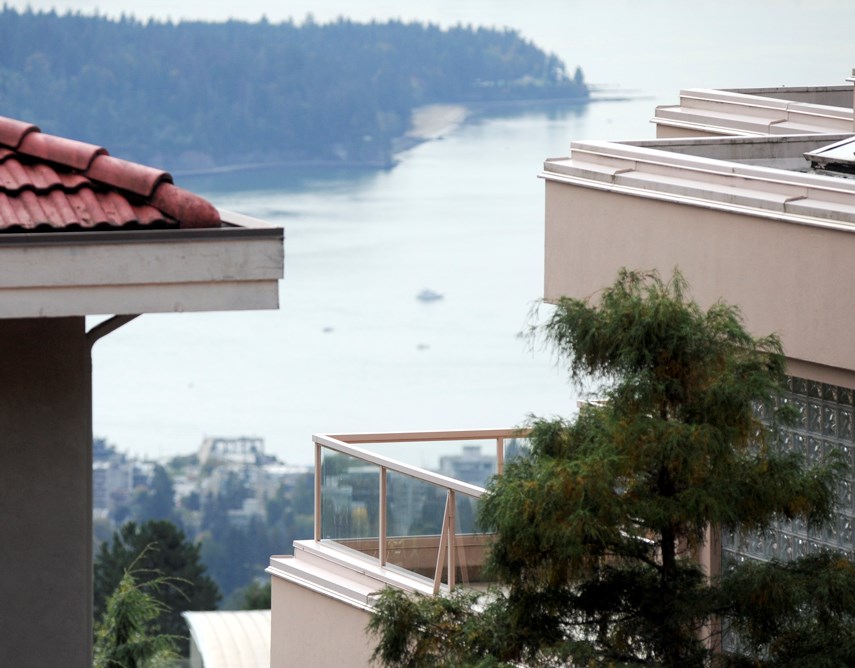Shutting the door to foreign ownership of residential properties will have little impact on housing prices on the North Shore, local Realtors say, because the government is making the move about a decade too late.
“Everyone blames the foreign buyers” for skyrocketing housing prices, said Calvin Lindberg, a West Vancouver real estate agent with Angell Hasman & Associates. Foreign buyers are a convenient boogeyman, said Lindberg, “People want to see governments do something” about the current housing crisis, he said.
On Thursday, the federal finance minister introduced a two-year ban on foreign ownership of residential properties as one measure among several aimed at the housing crunch. Recreational properties aren’t included in the moratorium.
Refugees, students and people with work permits will also be exempt from the policy.
But when it comes to foreign buyers, the government is late to the party, said Lindberg.
Compared to six or seven years ago, when foreign buying in the North Shore market was at a peak, foreign buyers are a much smaller factor in the real estate market today, said Lindberg.
Starting with the introduction of the provincial foreign buyers tax in 2016, foreigners have played a much less prominent role in local real estate and disappeared almost entirely during the COVID-19 pandemic, he said.
Brent Eilers, a Realtor with ReMax Masters Realty in West Vancouver had a similar take.
“The first reaction I have is fantastic. Just where the hell were you 20 years ago?” he said.
It’s a similar scenario to the provincial beneficial home-ownership registry brought in years after the peak of buying and selling through proxies and "shadow flipping" of properties, he said.
“I think it’s a good idea, but it's a typical political manoeuvre,” said Eilers. “I don’t think it’s going to make that much difference in our real estate market.”
The new measures also won’t impact foreigners who already own property in Canada.
According to recent government figures, about nine per cent of homes in West Vancouver have some kind of foreign ownership (including those owned by foreigners, satellite families, corporations, trusts and those with mixed types of ownership). Previously, SFU researcher Andy Yan put that figure slightly higher, estimating foreigners own 12.7 per cent of single-family homes in West Vancouver.
In the District of North Vancouver, foreign owners own about 922 properties out of 27,855 residential properties.
In the City of North Vancouver, foreign owners ow about 1,062 properties.
Currently local buyers are the ones driving up house prices, said both Lindberg and Eilers. “The runaway train we’ve been on for the last two or three years has been caused by lack of inventory,” said Eilers.
Lindberg notes that real estate sales in 2021 – one of the “biggest years we’ve had in the past 10 years” – was fuelled entirely by local buyers.
After last year’s runaway market, this spring “It’s definitely cooling,” said Lindberg. Sales for the first three months of 2022 on the North Shore are down about 30 per cent from the same time period last year, said Lindberg.
Eilers said he’s still seeing activity in sales of homes priced under $2 million. On the North Shore, however, that rarely includes any single-family detached homes.
Figures from the Real Estate Board of Greater Vancouver showed the “benchmark” price for a detached home in North Vancouver in March was $2.3 million – up over 20 per cent from March 2021 – while the price of a West Vancouver home was $3 million. Condos in North Vancouver were selling for $850,000.
Lack of inventory has driven prices up, he said.
Among other measures the federal government announced last Thursday (April 7) to address the housing crisis, were a tax-free home savings account, additional first-time home buyers’ credits and a fund aimed at assisting municipalities to cut red tape to speed up housing developments.
Finance Minister Chrystia Freeland warned, however, there is no “silver bullet” that will fix the housing crisis.




